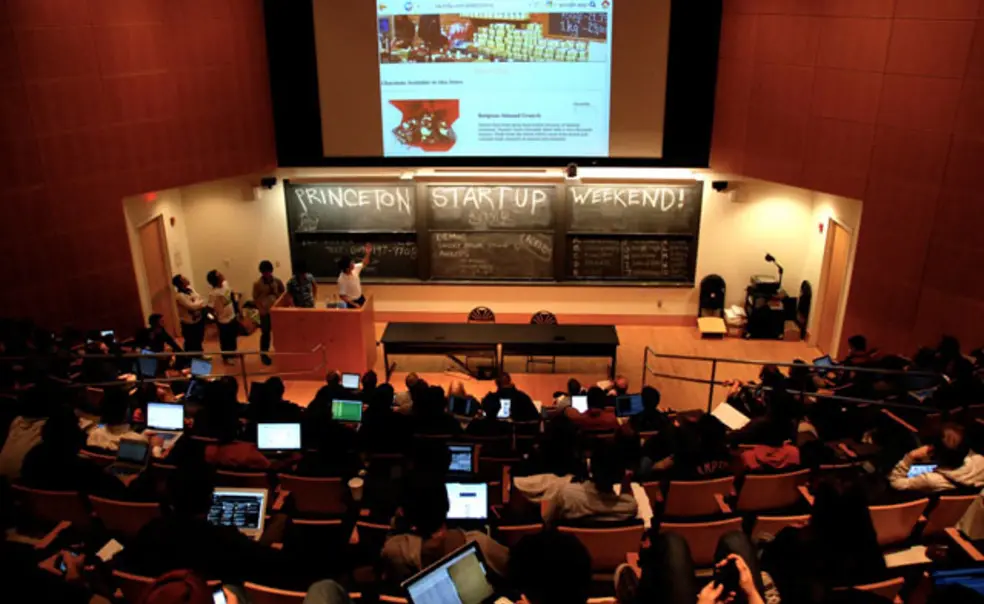Entrepreneurs develop ideas on deadline at Startup Weekend
Laptops open and ready, students developed ideas for new Web ventures during Startup Weekend at the Friend Center Auditorium. (Gavin Schlissel '13)
More than 80 budding Web entrepreneurs, including Princeton undergrads as well as students from nearby universities and professional developers, participated in the University’s first Startup Weekend Nov. 11-13.
The open competition challenged teams to start a Web-based company and pitch it to industry leaders. In addition to $1,500 and a head start on a new business venture, the Newsance.net team that won first place earned the attention of Internet developers, including investors and Web entrepreneurs who spent the weekend mentoring the teams and judging their final presentations.
According to Momchil Tomov ’14, one of the event’s student organizers, the program aimed to “help people overcome the initial barrier of realizing an idea.” Startup Weekend gave students a deadline, which often seems to be the most effective motivator for goal-oriented Princetonians. It encourages people to set aside time for an elective project, and possibly start a business in the process. “This event lets people dip their toe in the amazing world of startups in a creative environment,” Tomov explained.
Newsance.net team included Princeton students, a University of Pennsylvania undergrad, and one professional developer. Their startup is a news website that tries to “let you engage actively with your community in exploring the events around you” by adopting a kind of wiki-news open-source format that would let readers contribute to and edit live stories.

Organizer Momchil Tomov '14 addresses participants at Princeton Startup Weekend. (Gavin Schlissel '13)
Princeton undergrads also took home the prize for “coolest hack,” or most creative use of code, for Hungry Tigers (available here for those readers with a Princeton login). Hungry Tigers is an imaginative implementation of Princeton’s famed free food listserv, a public email thread where people post sightings of free food to their fellow foragers. The Web-based application would let the 1,300 students who currently subscribe to the free food listserv view free food on a campus map, to help students quickly identify what forgotten feast may be within striking distance.
Gavin Schlissel ’13 is a molecular biology major from Moraga, Calif.














No responses yet